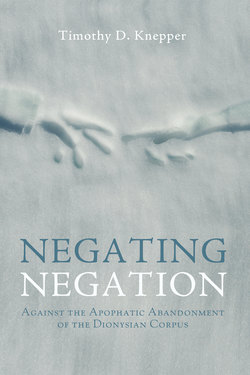Описание книги
Negating Negation critically examines key concepts in the corpus of Pseudo-Dionysius the Areopagite: divine names and perceptible symbols, removal and negation, hierarchy and hierurgy, ineffability and incomprehensibility. In each case it argues that the Dionysian corpus does not negate all things of an absolutely ineffable God; rather it negates few things of a God that is effable in important ways. Dionysian divine names are not inadequate metaphors or impotent attributes but transcendent divine causes. Divine names are not therefore flatly negated of God but removed as ordinary properties to be revealed as divine causes. The hierurgical rituals and hierarchical ranks of the church are also not negated or bypassed but serve as the necessary means of return to God. This Dionysian God is therefore not absolutely unknowable and ineffable but extraordinarily knowable and sayable as scripturally revealed and hierarchically conveyed. Negating Negation concludes that since the Dionysian corpus does not abandon all things to apophasis, it cannot be called to testify on behalf of (post)modern projects in religious pluralism and anti-ontotheology. Quite the contrary, the Dionysian corpus gives reason for suspicion of such projects, especially when they relativize or metaphorize religious belief and practice in the name of absolute ineffability.
